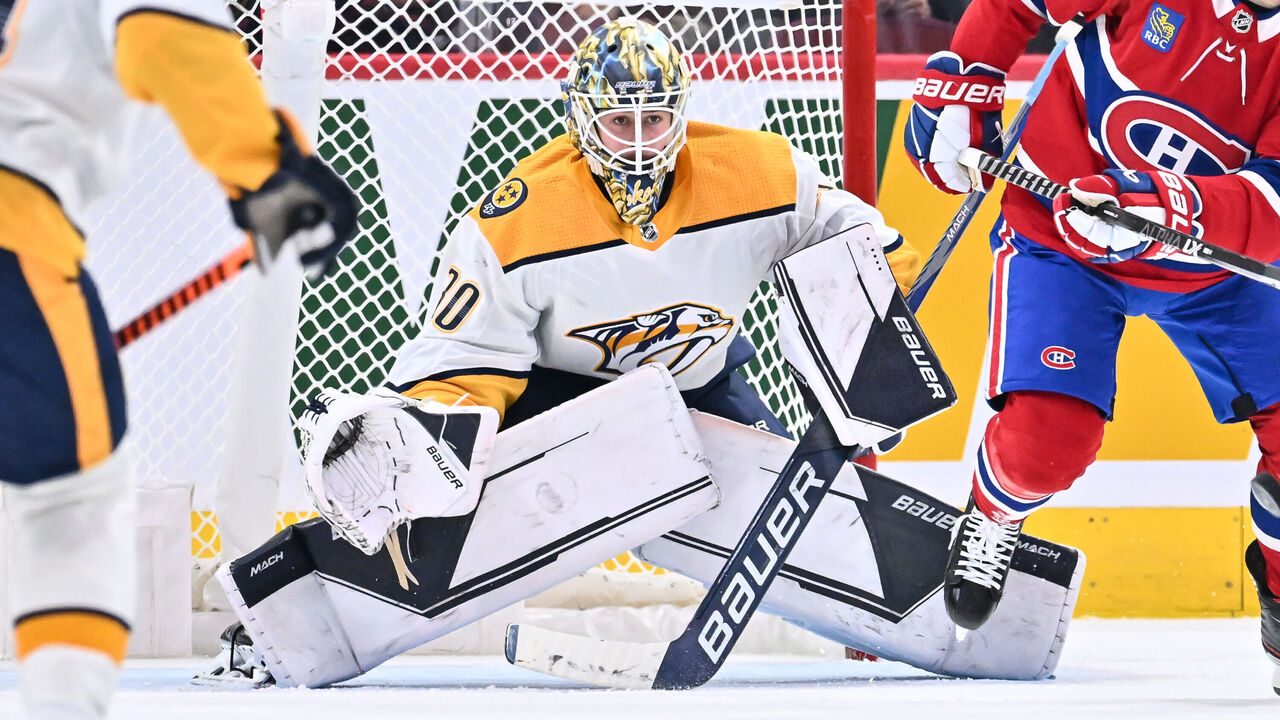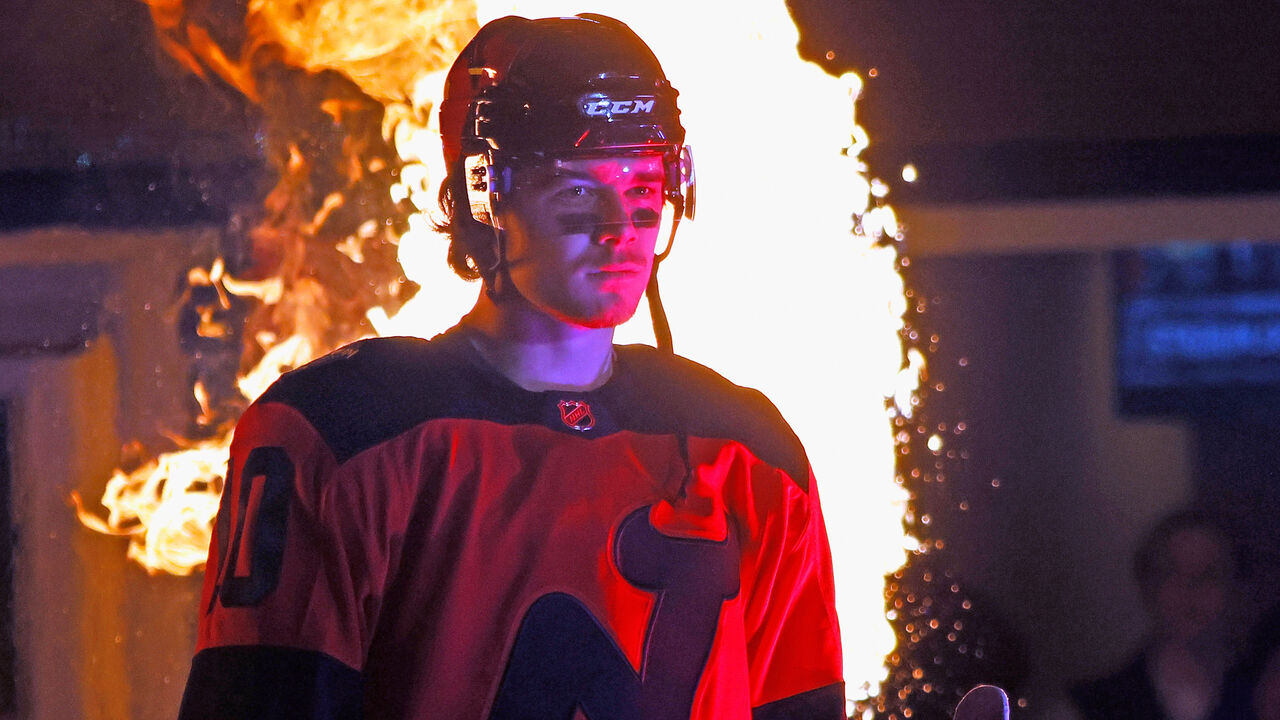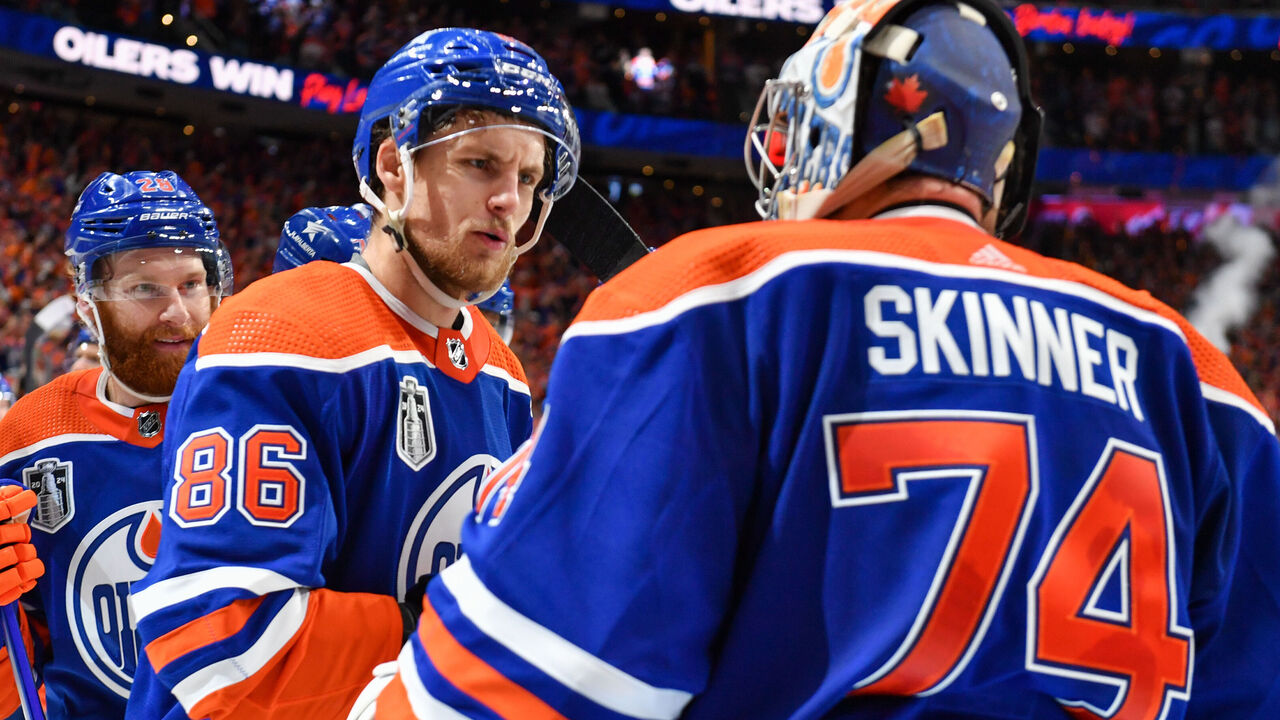Why top NHL prospects are changing teams at rapid speed
By the time Yaroslav Askarov asked for a trade in August, demands of the sort had become familiar.
The former Predators farmhand, one of hockey's best prospect goaltenders, was impatient and peeved about his lot in the sport. Juuse Saros' grip on the No. 1 role in Nashville - solidified by a rich eight-year extension - blocked Askarov's path to NHL starts.
Askarov, 22, didn't want to be trapped in the minors for a third season. He was swapped to the Sharks and negotiated an additional two years to his contract to enthusiastically commit to the league's worst team - and the prospect of playing time.
In some summers, top talent headlines the NHL's biggest trades. Erik Karlsson joined the Penguins in 2023 following his third Norris Trophy win. The 2022 Matthew Tkachuk-Jonathan Huberdeau blockbuster unlocked the Panthers' championship potential.

This year, the centerpieces of most splashes were recent high-draft selections. Askarov's trade capped months of rampant prospect movement. These players changed teams at whirlwind speed for a range of reasons, including the exertion of leverage by three disgruntled prospects: Askarov and college forwards Rutger McGroarty and Cutter Gauthier.
Ten players who were drafted in the top 15 between 2019-23 have been traded since January. The flurry broke down like this:
- The Sharks acquired Askarov for prospect forward David Edstrom and a future first-round pick, plus goalie Magnus Chrona.
- McGroarty's refusal to sign with the Jets, who shipped him to Pittsburgh for Brayden Yager, echoed Gauthier's earlier rejection of the Flyers, who recouped Jamie Drysdale from the Ducks.
- Utah dealt Conor Geekie and the Sabres ditched Matthew Savoie for immediate upgrades, while other teams dumped apparent whiffs (Devils with Alexander Holtz; Canucks with Vasili Podkolzin).
- Bowen Byram headed to the Sabres at the 2023-24 deadline as the Avalanche filled an urgent need, grabbing second-line center Casey Mittelstadt.

Also, the Blues weaponized offer sheets to relieve the cap-strapped Oilers of Philip Broberg and Dylan Holloway.
These transactions remade supporting casts - McGroarty might ride shotgun as a rookie with Sidney Crosby or Evgeni Malkin - and involved a total of 15 teams, or almost half the league.
The moves stemmed from two causes: players forcing their way out and teams reassessing their priorities.
Like Gauthier last winter, McGroarty decided he wouldn't turn pro with his drafting franchise after two accomplished college seasons. At the risk of alienating all of Winnipeg, he applied the power available to NCAA stars who can keep developing at that level before inking a rookie contract, which ties a player to a team through his RFA years.
Teams that don't trade an unsigned player risk losing him outright when his draft rights expire. Since McGroarty and Gauthier instantly got what they wanted, it's possible more NCAA first-rounders will copy their tactics.
Young pros who felt stifled or lowballed this summer found ways to gain control. Askarov's high trade value convinced the Predators to fulfill his demand. Profiting from the Blues' creativity, Broberg and Holloway signed deals with a combined cap hit of $6.87 million, which would've broken Edmonton's budget.

Some prized prospects were jettisoned opportunistically. Pittsburgh sacrificed Yager because McGroarty is closer to NHL-ready. Utah used Geekie as a chip to land impact defenseman Mikhail Sergachev, a two-time Stanley Cup winner and cap casualty with the Lightning. Stuck in an endless playoff drought, Buffalo punted on Savoie's potential to boost the bottom six with center Ryan McLeod, a finished product and surer thing who can score a bit and defend.
Most of the trades reflected shifting team needs.
Backed into a corner, the Jets and Flyers managed to land prospects with similar upside to McGroarty and Gauthier. The Avalanche's glut of skilled defensemen let them swap Byram for support up front for Nathan MacKinnon. The Devils sold low on Holtz to bring in Paul Cotter from the Golden Knights, hoping his checking and speed will translate to the postseason. The Oilers let go of a fourth-round pick to audition Podkolzin as Holloway's possible replacement.
Franchise cornerstones who were drafted in the same range have already signed major contracts. As part of a new trend, they opted for the security of term and a big salary that'll ultimately be an underpayment if they tear up the league.
If a young NHLer isn't indispensable, he might be expendable. Front offices have quickened their decisions lately. They're acting fast to lock up certain players and split with others, whether that happens by choice or under pressure.
Nick Faris is a features writer at theScore.
HEADLINES
- Flyers' Zegras: Feels 'f---ing amazing' to score twice, beat Ducks
- Sorokin breaks Islanders' all-time shutouts record in 9-0 win over Devils
- Kucherov powers Bolts past Avs with 7th straight multi-point game
- Jets' Fleury alert, moving extremities after leaving ice on stretcher
- Flyers GM Briere prioritizing future over short-term playoff push